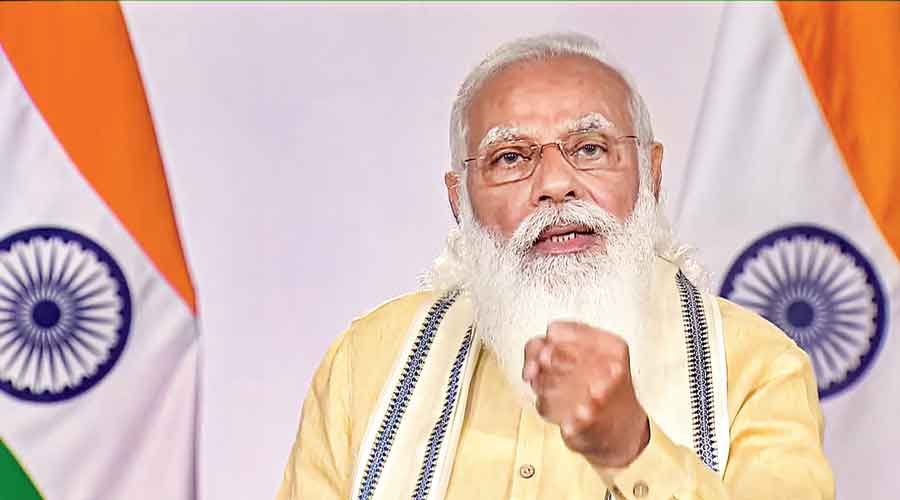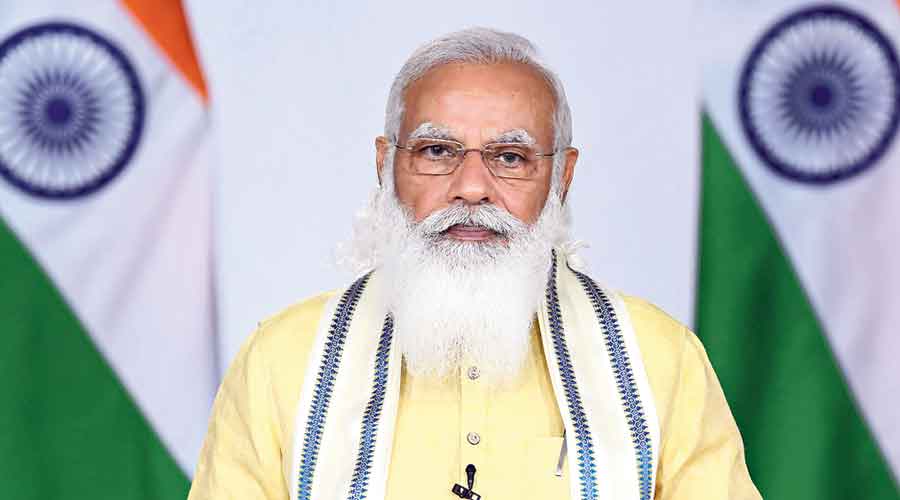Prime Minister Narendra Modi uttered over 2,600 words before the nation on Monday.
Not one was about the Supreme Court.
The highest court of the land has been consistently suggesting course corrections and offering constructive proposals when the second wave of Covid-19 appeared to have caught the Centre unprepared.
Instead, unnamed spin-doctors worked overtime on Monday night, dropping hints that the announcements made by Modi on vaccine centralisation and making the doses largely free preceded the court’s observations.
The propagandists spread the claim that the decisions were on the Prime Minister’s table on June 1 itself, 24 hours before the Supreme Court observed on June 2 that the Centre’s policy was prima facie arbitrary and irrational.
But the Supreme Court had made other observations on the need to centralise vaccination on May 31 itself.
On Tuesday, the country’s top vaccination adviser was deployed to underscore that the process to reformulate the Covid inoculation policy had begun in May itself when difficulties with the current policy became apparent.
“We respect the concerns expressed by the honourable Supreme Court, but the government of India was evaluating the implementation of the decentralised model ever since it was implemented on May 1,” said Vinod Paul, member of the Niti Aayog and chair of the national expert panel on Covid-19 vaccination.
“We asked whether it is going the way it should or are there difficulties,” Paul said. “Such decisions are taken over a period of time — based on analysis, based on feedback, based on experience, based on consultations with manufacturers and state governments, internal systems, science, a totality of picture. And of course, public narrative, very important.”
The combined Opposition had demanded on May 2 free, centralised vaccination — more or less what Modi announced on Monday (June 7). It is not clear why what was apparent to the Opposition on May 2 was not conclusive enough for the policymakers who took more than a month to change the policy.
Paul said patterns had emerged by May 15. Modi chaired high-level meetings on May 15 and May 21, took feedback and gave directions “that we needed to work on an alternative model”, Paul said. “It became clear we needed to modify the system prevailing at the time.”
He said a detailed presentation was made to Modi “10 to 15 days ago”.
“I can say with full confidence and full responsibility that this is our internal feedback systems and monitoring programme that has been going on from the very beginning,” Paul said.












